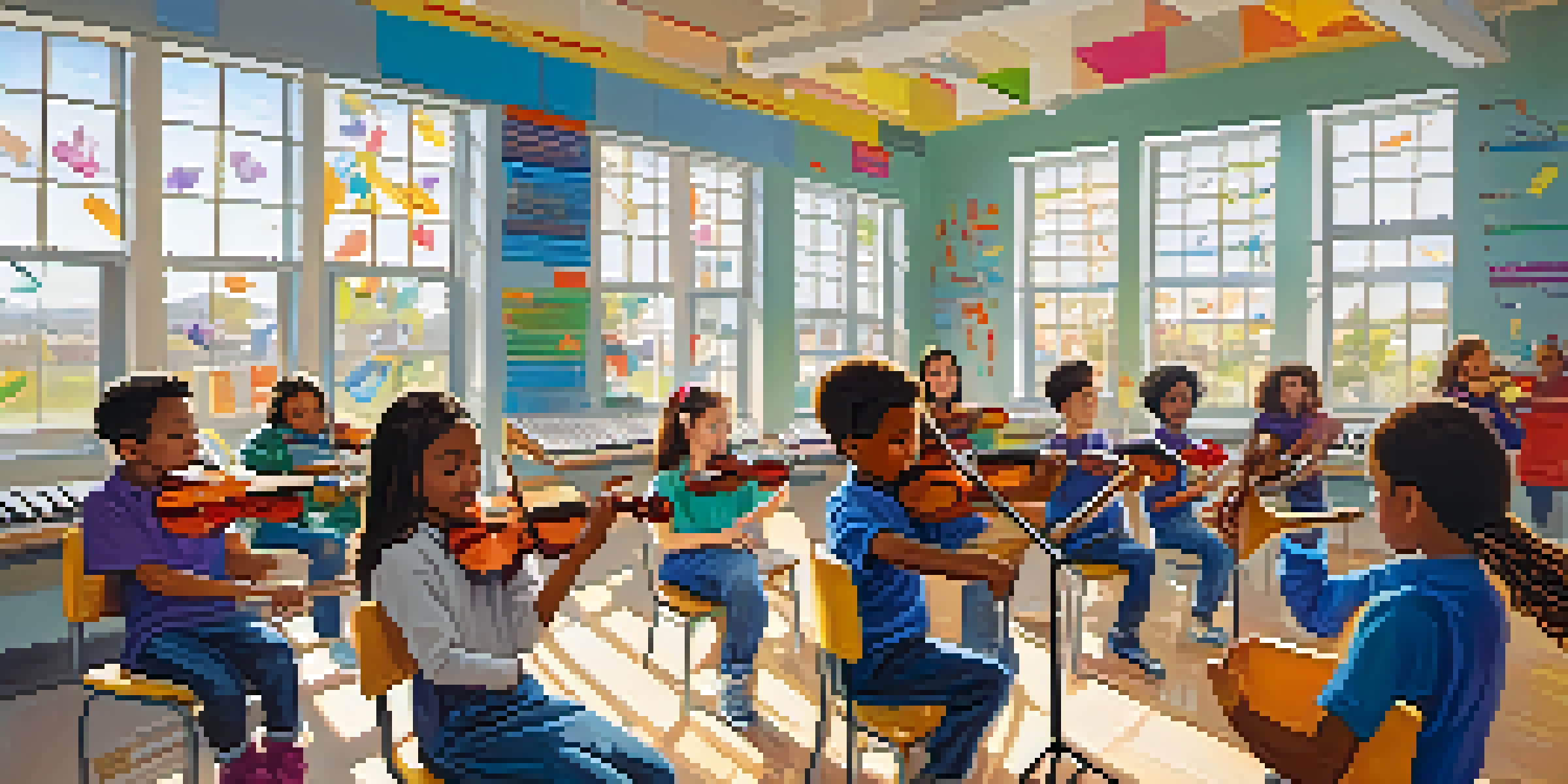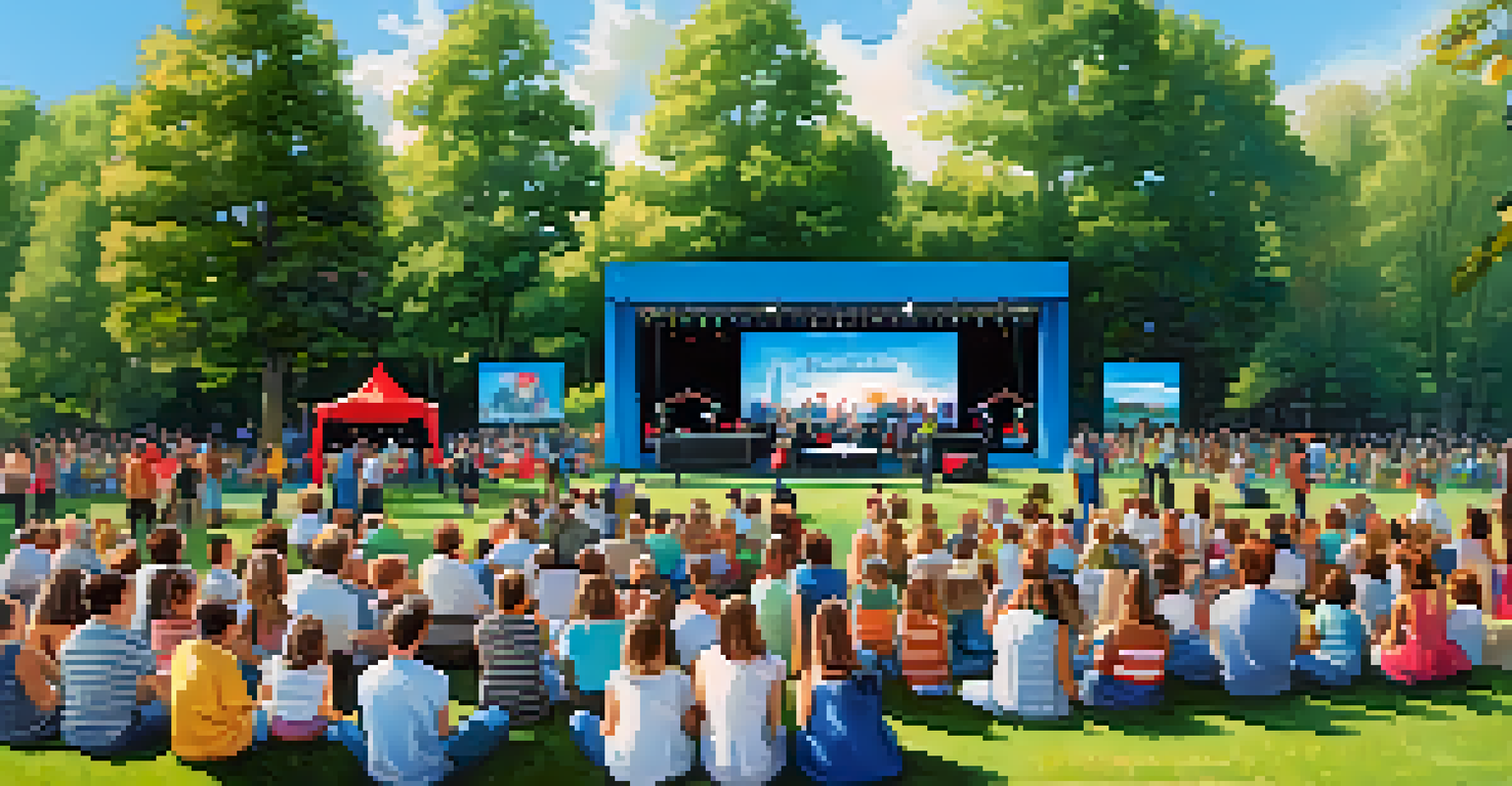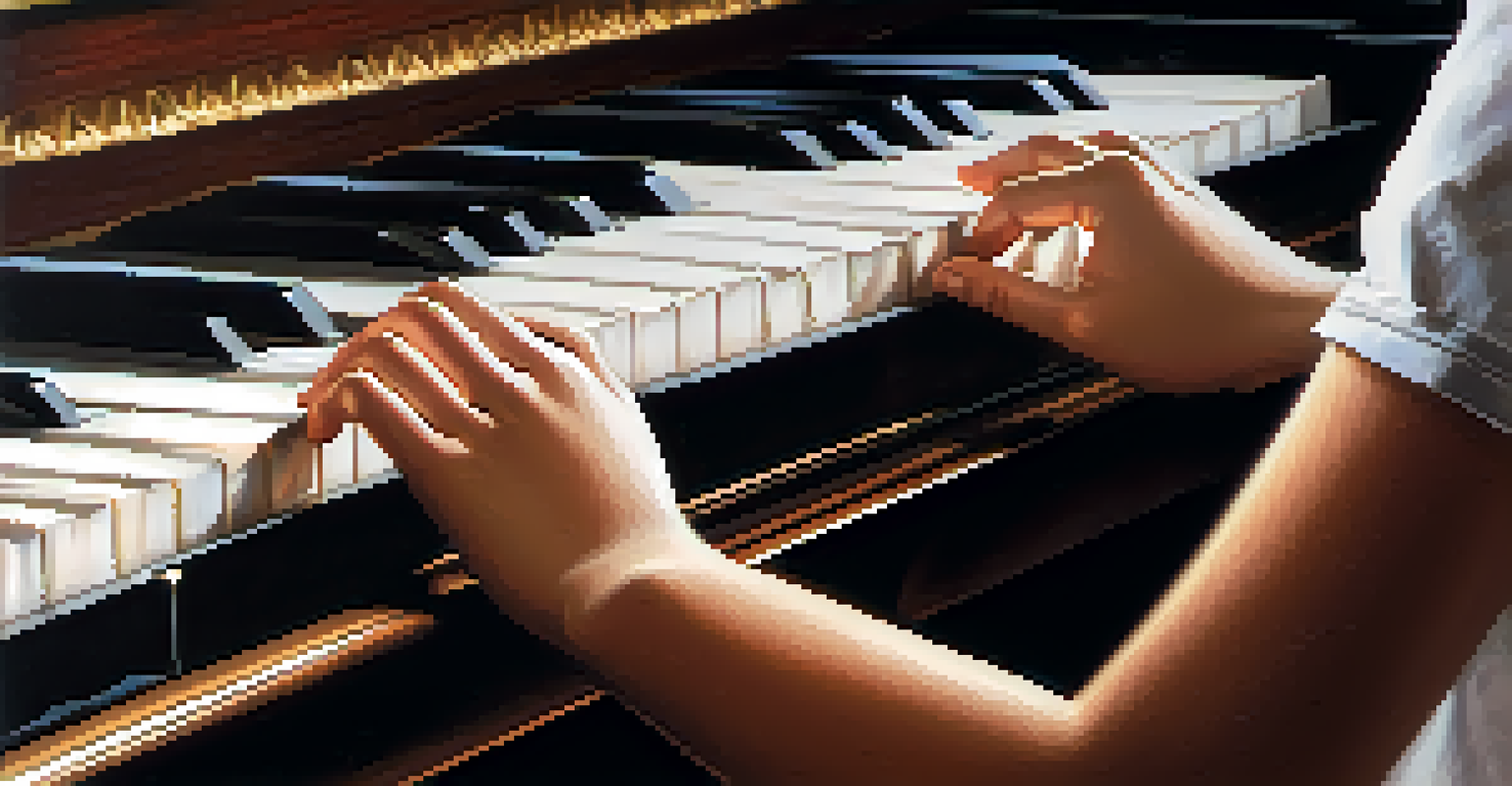Community Support for School Music Programs: A Policy Perspective

The Importance of Music Education in Schools
Music education plays a crucial role in the holistic development of students. Not only does it foster creativity, but it also enhances cognitive skills and emotional intelligence. By learning an instrument or participating in a choir, students gain discipline and teamwork skills that benefit them in all areas of life.
Music education is a crucial part of a well-rounded education, providing students with the tools they need to succeed in all areas of life.
Research shows that students involved in music programs often perform better academically compared to their peers. This improvement can be attributed to the skills learned through music, such as critical thinking and problem-solving. Moreover, music education provides an outlet for self-expression, which is essential for personal growth during school years.
Incorporating music into school curricula is not just about teaching notes and rhythms; it's about nurturing well-rounded individuals. Communities that support music education are investing in the future leaders of society, emphasizing that art and culture are as vital as traditional academic subjects.
Understanding Policy Frameworks for Music Programs
Policies aimed at supporting school music programs vary widely across regions, impacting funding and resources. Local, state, and federal policies can either bolster or hinder music education initiatives, making it crucial for stakeholders to understand these frameworks. For instance, some states allocate specific funds for arts education, while others may prioritize different programs.

Effective advocacy for music programs often hinges on clear policies that outline goals, funding mechanisms, and accountability measures. Engaging policymakers with data showing the benefits of music education can lead to more favorable policies that secure necessary funding. Additionally, collaboration among educators, administrators, and advocates can ensure that music education remains a priority within educational policies.
Music Boosts Student Development
Music education enhances creativity, cognitive skills, and emotional intelligence in students.
By understanding and influencing policy frameworks, communities can better advocate for robust music programs. This not only ensures the continuity of music education but also fosters a culture that values artistic expression within the educational landscape.
Community Engagement: A Key to Success
Community support is essential for the sustainability of school music programs. Local businesses, parents, and residents can contribute resources, funding, and volunteer efforts that significantly enhance music education. By creating partnerships, schools can tap into the collective strength and passion of the community, ensuring that music programs thrive.
The arts are an essential part of education, just like reading, writing, and arithmetic. Music is a part of that education.
Engagement can take many forms, from organizing fundraising events to providing mentorship opportunities for students. For example, local musicians might offer workshops or masterclasses, enriching the educational experience while building connections between students and professionals. These interactions not only inspire students but also strengthen community ties.
When communities rally behind school music programs, they create a supportive environment that encourages creativity and collaboration. This collective effort helps cultivate a culture that recognizes the importance of the arts, ultimately benefiting the entire educational ecosystem.
The Role of Funding in Music Education
Funding is a critical component for the success of school music programs. Insufficient funding can lead to limited resources, fewer instruments, and, ultimately, diminished opportunities for students. Therefore, understanding the funding landscape is essential for advocates aiming to secure financial support for music education.
Schools often rely on a combination of public funding, grants, and private donations to sustain their music programs. Engaging with local businesses and arts organizations can open doors for sponsorships and partnerships that provide necessary financial backing. Additionally, creative fundraising initiatives, such as concerts or community events, can bolster resources.
Funding is Essential for Programs
Sufficient funding is crucial for sustaining school music programs and providing necessary resources.
Advocacy for increased funding can also involve lobbying for policy changes at various government levels. By presenting compelling data on the benefits of music education, advocates can make a strong case for why funding should be prioritized, ultimately leading to a more vibrant music education landscape in schools.
Building Partnerships Between Schools and Local Organizations
Collaborating with local organizations can enhance school music programs significantly. Partnerships with arts organizations, music stores, and community centers can provide additional resources and expertise. For instance, a local symphony might partner with schools to offer workshops, creating a richer educational experience for students.
These partnerships can also lead to joint events, such as concerts and competitions, that showcase student talent and foster community pride. When students perform alongside professional musicians, they gain invaluable experience and motivation, reinforcing their passion for music. Such collaborative efforts can also help raise awareness and support for music education in the broader community.
Building strong partnerships requires ongoing communication and mutual goals. When schools and local organizations work together, they can create a sustainable model for music education that benefits everyone involved, ultimately enriching the cultural fabric of the community.
Advocating for Music Programs at School Board Meetings
School board meetings are a vital venue for advocating the importance of music programs. Parents, students, and community members can voice their support for music education and its benefits during these meetings. By sharing personal stories and data, advocates can effectively communicate the value of music programs to decision-makers.
Preparation is key when presenting at school board meetings; knowing the facts and having clear, concise arguments can make a significant impact. For example, bringing statistics that illustrate improved academic performance among music students can underscore the importance of sustaining and enhancing these programs. Additionally, showcasing student achievements and testimonials can provide a powerful narrative that resonates with board members.
Community Engagement Fuels Success
Strong community support and partnerships are vital for the sustainability and growth of music education.
Encouraging community involvement in these meetings can amplify the message and demonstrate widespread support for music education. When school boards see the community's passion for music programs, they are more likely to prioritize them in budget discussions and policy decisions.
The Future of Music Education: Trends and Opportunities
As society evolves, so too does the landscape of music education. Emerging trends such as technology integration, online learning platforms, and diverse musical genres are shaping how music is taught in schools. Educators must adapt to these changes to ensure that music programs remain relevant and engaging for students.
One exciting opportunity is the incorporation of digital tools, which can enhance music learning experiences. For instance, software programs can help students compose and record their music, providing a modern twist to traditional music education. Additionally, virtual collaborations allow students to connect with peers from different backgrounds, enriching their musical perspectives.

Looking ahead, it’s essential for communities to remain proactive in supporting music education. By staying informed on trends and advocating for innovative approaches, community members can help ensure that school music programs continue to inspire and nurture future generations of musicians.